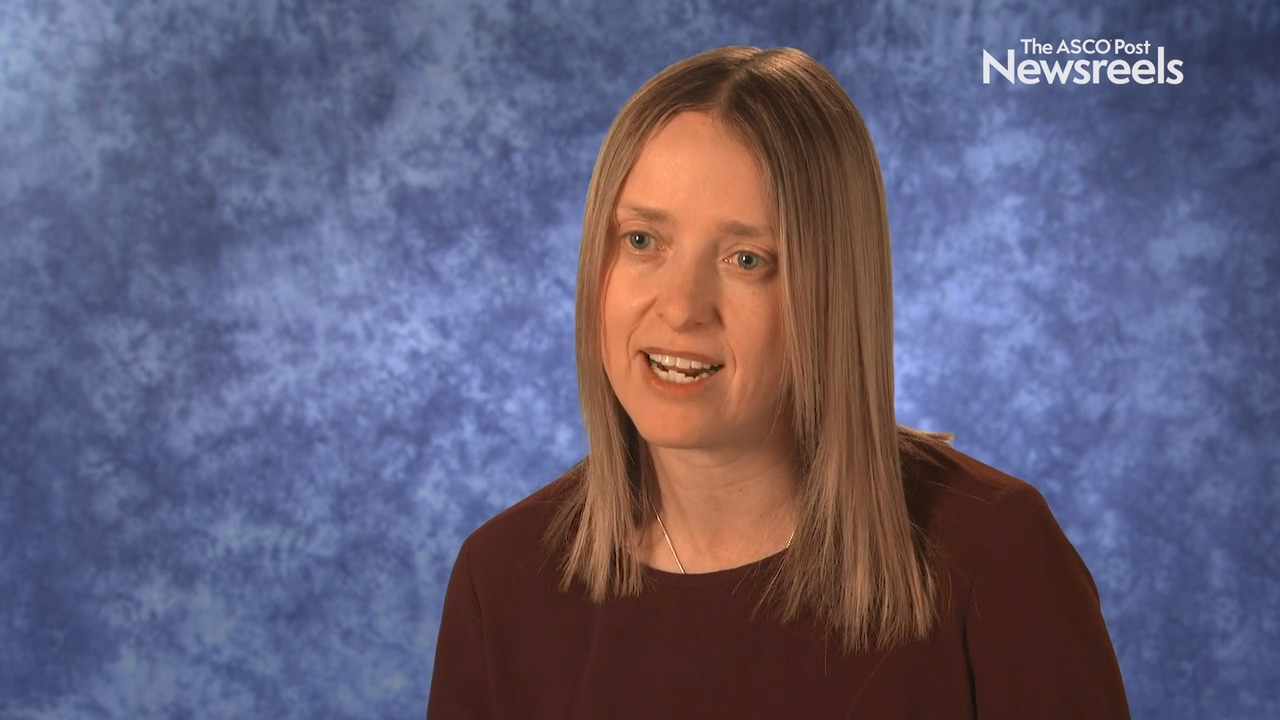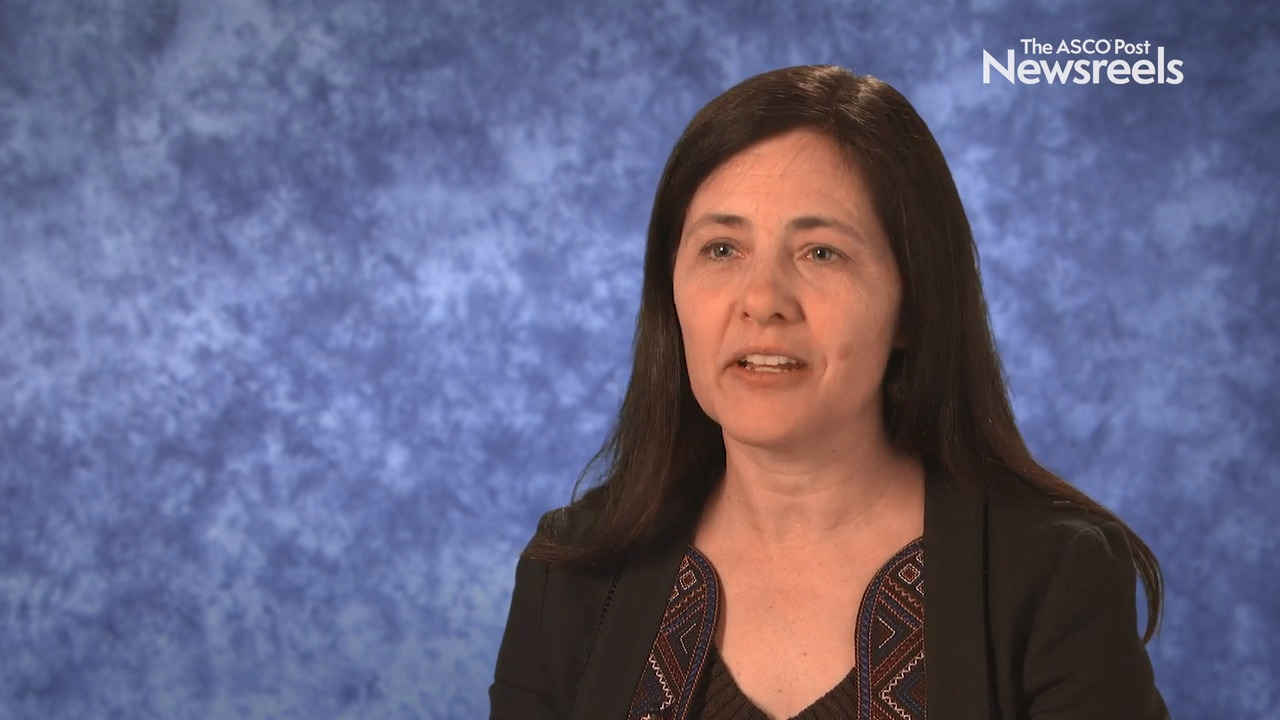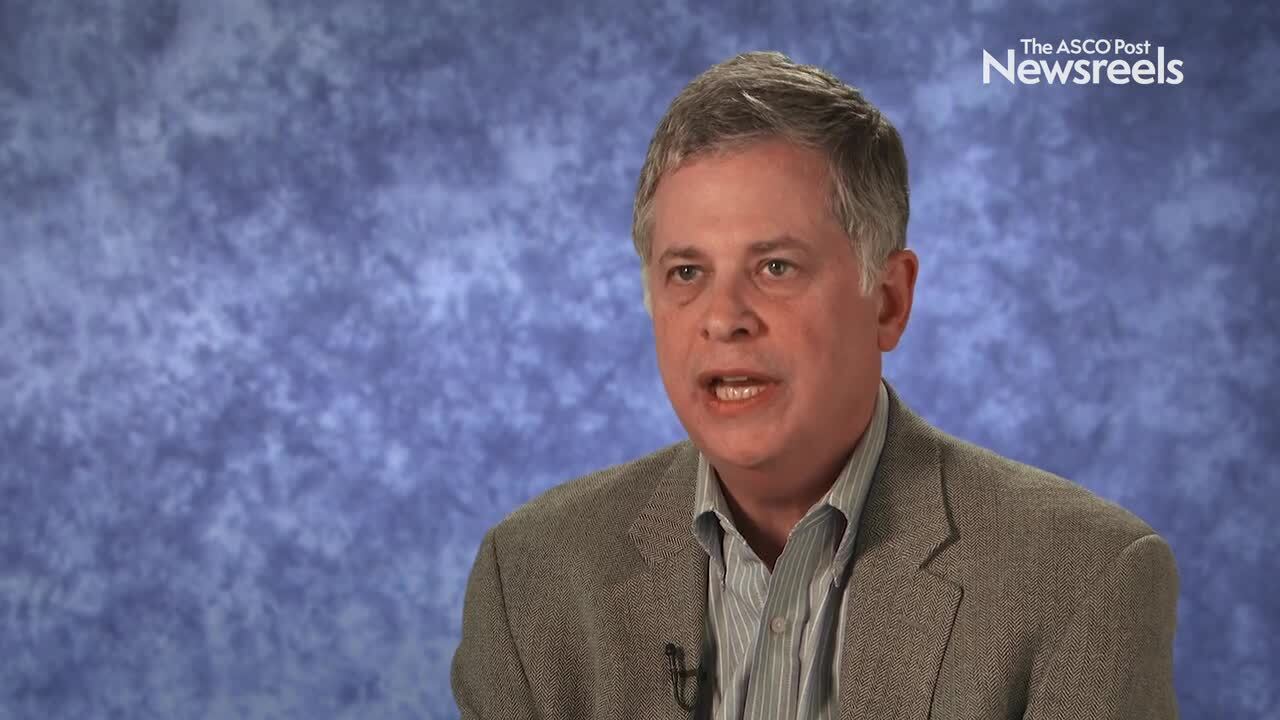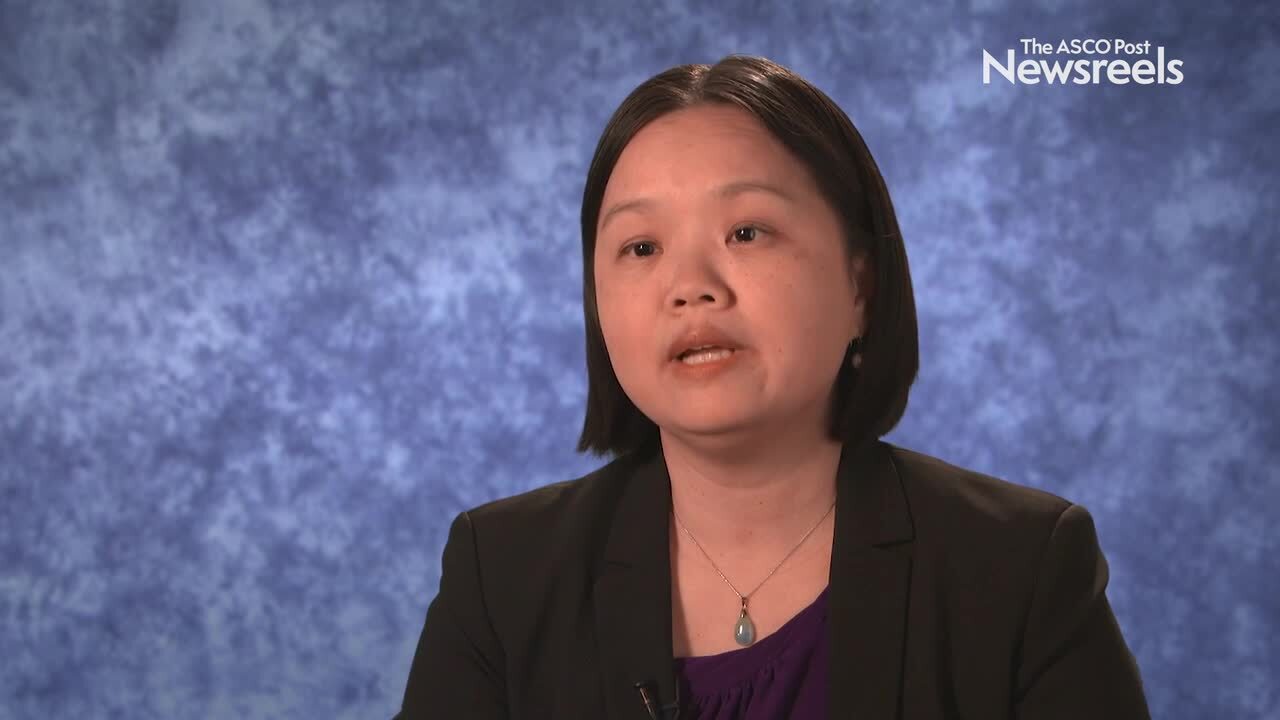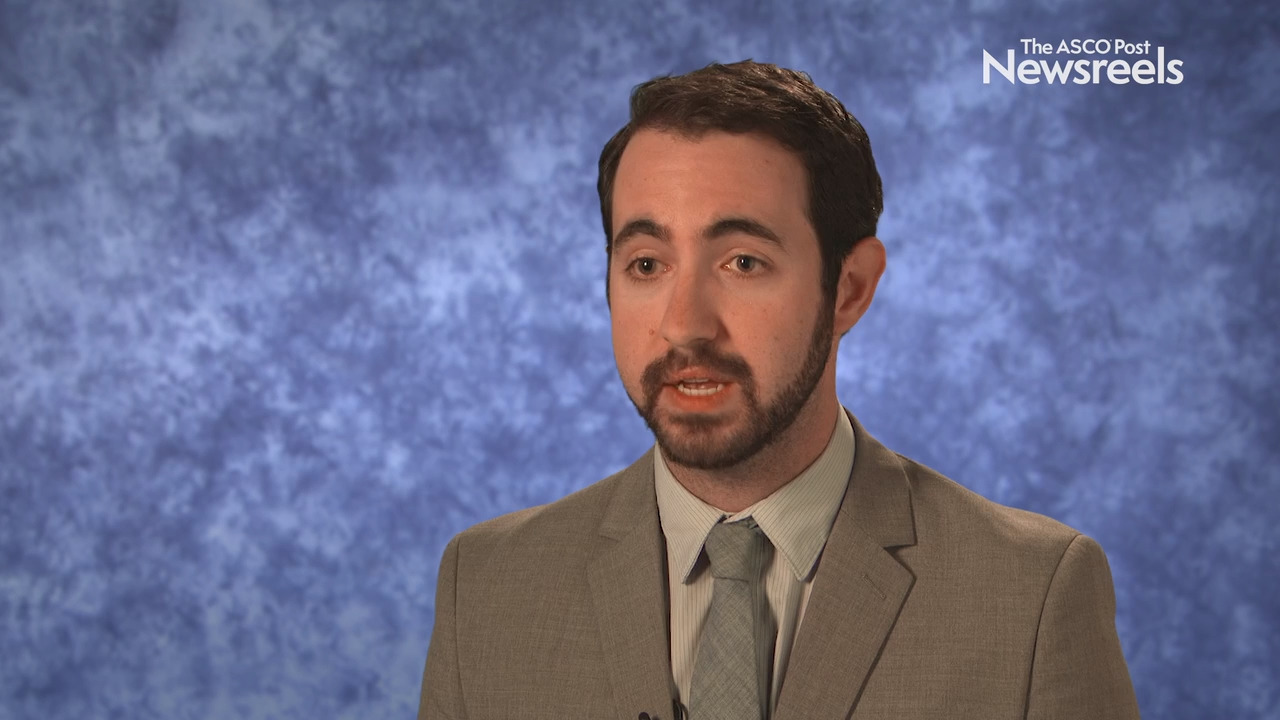Jing Zeng, MD, on Non–Small Cell Lung Cancer: Therapeutic Implications of Proper Disease Staging
2019 Multidisciplinary Thoracic Cancers Symposium
Jing Zeng, MD, of the University of Washington, discusses upstaging disease from stage III to stage IV, which can occur with repeat PET and/or CT scans for patients with locally advanced NSCLC, and the need for clinicians to stage disease properly to ensure appropriate treatment.
Leora Horn, MD, of Vanderbilt University Medical Center, discusses the progress made treating extensive-stage small cell lung cancer, improvements in progression-free and overall survival, and the fact that it’s still difficult to determine which patients will benefit most from immunotherapy.
Heather A. Wakelee, MD, of Stanford University, discusses the most recent FDA-approved tyrosine kinase inhibitors that target EGFR and ALK mutations, how these agents fit into the treatment landscape, and the rapidly evolving field of TKI resistance.
Martin Edelman, MD, of Fox Chase Cancer Center, discusses the limited retrospective data that indicate some patients with cancer and autoimmune disease (such as lupus or ulcerative colitis) can safely receive immunotherapy with checkpoint inhibitors.
Ruqin Chen, MB, of the Mayo Clinic Florida, discusses early study findings that show molecular profiling with NF1, CD79a, and AKT3 could potentially improve prediction of progression-free survival in patients with lung cancer who are receiving immunotherapy.
Kyle F. Concannon, MD, of the University of Washington/Seattle Cancer Care Alliance, discusses study results on the delays in biopsy after radiographic findings among homeless vs housed patients with lung cancer, and the higher rates of missed appointments following diagnosis (Abstract 125).
